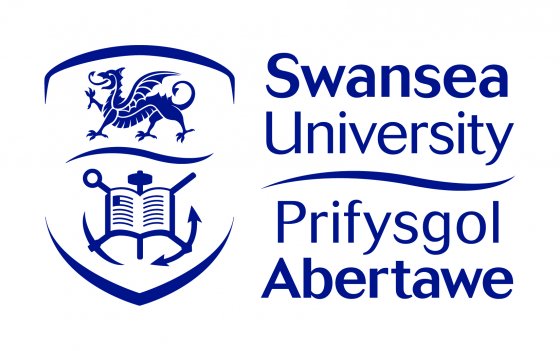ENERGY INNOVATION: FULLY FUNDED KESS II MSC BY RESEARCH SCHOLARSHIP: UPCYCLING SURGICAL FACEMASKS TO CARBON NANOTUBE WIRES
Key Information
*This scholarships is part funded by the Welsh Government’s European Social Fund (ESF) convergence programme for East Wales.*
Start date: October 2020
Given the recent high demand for surgical masks there is a need to find an end of life plan that can prevent landfilling. Researchers at Swansea University’s Energy Safety Research Institute (ESRI) will carry out work to prevent the disposal of healthcare products to landfill. Currently, these materials have one life and are then discarded in landfill sites. However, ESRI researcher Dr Alvin Orbaek White has developed new and novel technology that can convert these materials into electrical conduction cables. In short, this work can prevent the build-up of material in landfill sites, causing psychological relive to patients, and it can also decrease the costs to the industrial sponsor and the lower the negative impact to the environment as a whole.
PPE materials are essentially made of plastic layer and thin films. Plastics are made of carbon and so are carbon nanotubes, graphene and carbon fibre. We are using waste plastic materials as feedstock to make carbon nanomaterials. On a weight/weight basis that is creating a ~100 fold increase in value for the same carbon. Plus, it could have untold positive environmental impact too.
The research will be carried in two tandem paths.
Path one: the researcher will carry out chemical reactions in order to prepare plastic materials for chemical recycling. Chemical recycling entails the use of chemical vapour deposition (CVD) process to create carbon nanotubes, and/or graphene. In particular, the researcher will focus on developing a simple, single protocol for converting mixed streams of plastics (and similar materials) into nanomaterials. Materials are characterized using scanning electron microscopy, Raman spectroscopy and thermogravimetric analysis. All skills, training, and background will be delivered to the researcher. This path will be lab based at ESRI.
Path two: the experimental work will be complimented by use of modelling software. Software such as Ansys and Comsol will be used to study this process by making a digital twin of the process. This work is therefore compliant with needs to work from home if necessary but it can be carried out within the ESRI office space too.
NOTE: The Interior of ESRI was designed to ensure an open-space environment. Therefore, it is optimum to allow safe environment including working at social distancing as required by COVID-19. The laboratory benches are situated 4m apart allowing for excellent EHS practices. It has a 50% lower density of desk space within its hub (2nd floor) than the rest of Bay Campus, that allows for social distancing without alteration.
Risk mitigation: This project has been created with potential interruptions due to COVID-19 in mind. The modelling work can be carried out remotely through VPN access to Swansea University’s servers and software. The laboratory work will be carried out when it is safe, and will be first informed by the modelling processes.
Scholarships are collaborative awards with external partners including SME’s and micro companies, as well as public and third sector organisations. The scholarship provides 1 year funding with a 3 month period to complete the thesis. The achievement of a postgraduate skills development award, PSDA, is compulsory for each KESS II scholar and is based on a 30 credit award.
Eligibility
Candidates should have a 2.1 or above in their undergraduate degree in any of the physical sciences or engineering subjects. They should also be eligible for UK/EU Fees.
Candidates must be eager to learn, be willing to fail but not be deterred.
We would normally expect the academic and English Language requirements to be met by point of application.
For this scholarship students must also have:
- a home address in East Wales (details below)* at the time of registration and enrolment
- the right to take up paid work in the East Wales Area* on completion of the scholarship
East Wales * area covers: Vale of Glamorgan, Cardiff, Newport, Monmouthshire, Powys, Wrexham and Flintshire
For more information on eligibility criteria please refer to section C of the KESS II Participant Proposal Form.
Any queries relating to Section C – Eligibility, please contact KESSstudentenquiries@swansea.ac.uk.
Funding
The studentship covers the full cost of UK/EU tuition fees, plus a stipend. The bursary will be limited to a maximum of £11,819 p.a. dependent upon the applicant's financial circumstances as assessed in section C point 4 on the KESS II Participant Proposal Form.
There will also be additional funds available for research expenses.
Please note that students receiving KESS II support are not eligible for Postgraduate Master's Degree loan.
For more information click "LINK TO ORIGINAL" below.
This opportunity has expired. It was originally published here:
https://www.swansea.ac.uk/postgraduate/scholarships/research/energy-innovation-kess-east-msc-research-upcycling-surgical.php
